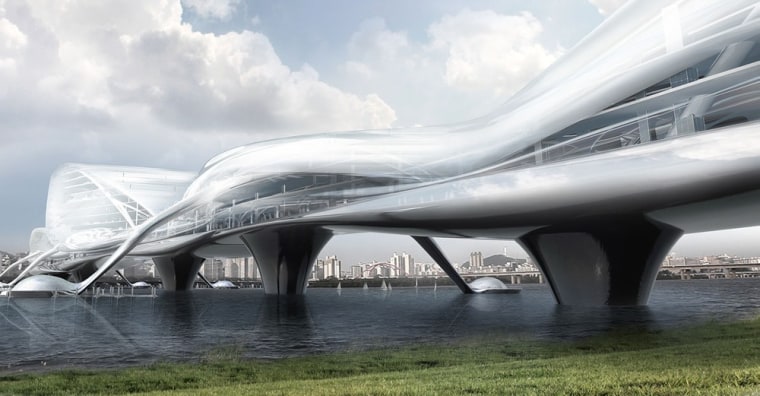Sure, fast-growing Abu Dhabi seems like one of the world's most forward-thinking cities. But it might as well be a dusty relic when compared to the town blossoming less than 15 miles away.
When it's fully operational in approximately 2020, wholly sustainable Masdar City is slated to have zero waste and zero carbon emissions; it will recycle most of its water and rely on solar energy and other renewable resources. Gas-guzzling cars are banned — replaced instead by podlike, battery-operated transit systems that travel underground. It's a visionary template for the world of tomorrow.
While Masdar City may be the ne plus ultra of the future metropolis, its planners are hardly the world's only visionary urbanites. Across the globe, architects and social engineers are taking entirely unique approaches to redefine how cities function. And traveling to these visionary cities today gives you a taste of the world of tomorrow.
One of the biggest — and most visible — issues plaguing cities? Traffic. To reduce the growing number of traffic jams, many metropolises are implementing bike-share programs. The most novel is in eastern China's Hangzhou, where commuters, tourists, and residents take turns cruising on 50,000 bikes. According to Sarah Goodyear, cities editor of the environmentally focused website Grist, "It opens up the idea that bicycles are a viable form of transportation, that they're not for recreation or sport."
Slideshow: World's Most Visionary Cities
Not keen to take two wheels to work? Our old friend the bus is getting a facelift, too. Though city buses often travel at a snail's pace, Brazil's Bus Rapid Transit system in the city of Curitiba is a lightning-fast dream. Buses arrive as often as every 90 seconds, and because passengers pay before boarding it takes as little as 15 seconds to load travelers. When buses depart, they zoom down dedicated lanes unobstructed by idling autos or taxis.
"Brazil's city planners envisioned a bus system that would rival a subway for speed and efficiency," says Goodyear. As a result, Curitiba "has a low rate of car ownership, cleaner air, and more pleasant quality of life," she says. "It's the envy of many cities in South America."
Curitiba's is also a vision that attracts city planners from around the world who come to witness the dream firsthand — and, perhaps, take some ideas home with them.
